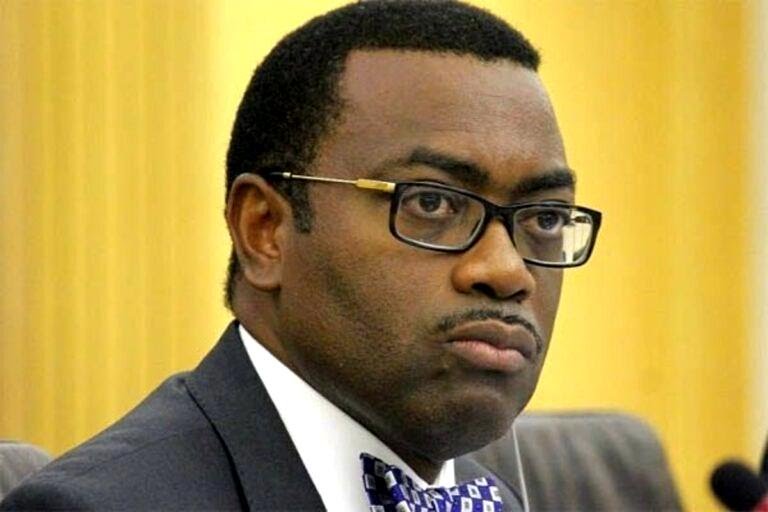The state of the nation is getting more pathetic by the day, with so much hunger, insecurity, violence and high unemployment rate driving the country to the brink.
The speech by the President of the African Development Bank Group, Dr. Akinwumi A. Adesina, at the Mid-Term Ministerial Performance Review Retreat, comes as a panacea to Nigeria’s recovery.
Speaking on the topic, ‘Nigeria’s Economic Resurgence: Learning from the African Experience’, Dr Adesina who was Guest Speaker at the retreat held October 11, 2021, in Abuja, gifted the federal government of Nigeria, a most loaded and padded speech; the content of which if implemented, will engender the country’s economic resurgence.
Stating the fact that the corona virus “pandemic has caused so many deaths and upended global economic growth”, he noted that “due to COVID-19, Nigeria’s economic growth rate declined to -1.8% in 2020. This mirrors the pattern across Africa, as the continent posted a -2.1% growth rate in GDP, its lowest in two decades”.
He however posited that the country’s recovery, expected in 2022, “will depend on two critical issues: access to vaccines and tackling debt issues”. He added that Nigeria must build quality health care systems that will protect its population, today and well into the future, as well as world-class local pharmaceutical industries, able to effectively tackle the production of therapeutic drugs and vaccines. “Nigeria must revamp its local pharmaceutical industry and launch strategic investments for local vaccine manufacturing. Africa should not be begging for vaccines; Africa should be producing vaccines.
“The African Development Bank will invest $3 billion in support of local pharmaceutical industries in Africa, including in Nigeria”.
Adesina also insisted that “Nigeria must decisively tackle its debt challenges. The issue is not about debt-to-GDP ratio, as Nigeria’s debt-to-GDP ratio at 35% is still moderate. The big issue is how to service the debt and what that means for resources for domestic investments needed to spur faster economic growth. “The debt service to revenue ratio of Nigeria is high at 73%.Things will improve as oil prices recover, but the situation has revealed the vulnerability of Nigeria’s economy. To have economic resurgence, we need to fix the structure of the economy and address some fundamentals”.
Dr Adesina advised government to “significantly boost productivity and revenues from its non-oil sector, with appropriate fiscal and macroeconomic policies, especially flexible exchange rates that will enhance international competitiveness”, adding that “The private sector should be given incentives to invest in infrastructure.
”The Federal Government’s15 trillion Naira Infrastructure Fund is a good idea, so is the initiative for tax credits for private sector investment in infrastructure. To be sustainable and more efficient, Public-Private Partnerships (PPPs) should be accelerated to finance major infrastructure across Nigeria”, he stated. Regarding trade, investment, and competitiveness, he explained that “The Africa Continental Free Trade Area presents a major opportunity for Nigeria. Consumer and business expenditures in Africa are projected to rise to $6.7 trillion by 2030.
“Significant support should be directed toward boosting industrial manufacturing capacities. Nigeria should also move rapidly to the top of selected value chains, such as automobiles, computers and electronics, textile and garments, and food manufacturing, transport, and logistics”.
Much, he noted in this regard, will depend on the ports of Nigeria. “According to the sector operators, the cost of exporting 100 tons of cargo in Nigeria is $35,000, compared to $4,000 in Ghana. Today, the leading ports for West Africa are in Cote d’Ivoire, Ghana, Togo, and Benin Republic. All these countries have modernized their port management systems, leaving Nigeria far behind”.
Nigeria, he said can “learn from Morocco’s world-class Tangier-Med port. The port is unique in that it is an industrial port complex, and a platform that has over 1,100 companies. They collectively exported over € 8 billion worth of goods in 2020″.
Sharing his experience at the Tangier-Med Port, Dr Adesina said, “I actually thought they were on vacation, as I did not see people; just machines, haulers, automated systems moving containers in what looked like a well-synchronized maze, with incredible efficiency. There were no kilometers of trucks waiting to get to the port”.
Suggesting the adoption of the Morocco port model, he declared that “We should not be decongesting the ports in Nigeria, we should be transforming the ports. Nigeria should rapidly modernize and transform its ports. Ports are not there for revenue generation. They are for facilitating business and exports, and stimulating industrial manufacturing, and competitiveness of local businesses and exports”.
Another approach to Nigeria’s recovery he recognized, is to boost food security, reduce the price of food, and ensure greater competitiveness of the agricultural sector. The ‘Growth Enhancement Scheme’ and the e-wallet system which he deployed while as Minister of Agriculture in Nigeria, which led to fall in prices of food due to increase in production, he revealed, have been adopted in Togo, Liberia, and other African countries, “Yet in Nigeria where they were developed, they are no longer being implemented”. He pointed out that lack of rain, insecurity, middlemen, are not the major factors responsible for low food production but “the main reason is that farmers no longer have access to quality improved seeds, fertilizers, and farm inputs at scale”.
While joining farmers across the country to plead with the Federal Government to restore the popular Growth Enhancement Support Scheme and the e-Wallet system so as to put millions of farmers at the heart of agriculture at scale, Dr Adesina said, “if this is done, and run well, I can assure you that you will see a dramatic turnaround in national food production”.
He further called on government to take “bold policy measures to drive the structural transformation of agriculture, with infrastructure and spatial economic policies”.
”The key for this is the development of Special Agro-industrial Processing Zones (SAPZs)across the country. Nigeria should establish Special Agro-industrial Processing Zones all across the country. The e-Wallet System and Growth Enhancement Scheme, to boost farmers access to productivity enhancing farm inputs should be reinstated and enshrined in law. Policy reversals should be avoided”, he maintained.
With the rate of unemployment and youth involvement in societal ills soaring, as part of the recovery strategies for the country, Dr Adesina suggested, that it was high time Nigeria unleashed the potential of her youth. “Today, over 75% of the population is under the age of 35. More decisive actions are needed to turn this demographic asset into an economic dividend. A young, productive, youthful population, with access to education, skills, social protection, affordable housing, and medical care, will power Nigeria’s economy, now and well into the future”, he explained, emphasizing that “We must move away from so-called ‘youth empowerment programs’. The youth do not need handouts. They need investments.”That is why the African Development Bank is currently working with Central Banks and countries to design and support the establishment of Youth entrepreneurship investment banks. These will be new financial institutions, run by young, professional, and highly competent financial experts and bankers, to develop and deploy new financial products and services for businesses and ventures of young people. Several African countries have already indicated their readiness to establish Youth Entrepreneurship Investment Banks”.
By establishing Youth entrepreneurship investment banks, he said Nigeria would be making its youth the drivers of the new economy.
The place of technology as one of the industries that will dominate the future, cannot be overemphasized. On this note, the African Development Bank Group president, disclosed that by “2030, 650 million Africans will have smart phones, and 50 million will have 5G phone networks. Digital payments, mobile money accounts, savings, credit, and money transfers will revolutionize businesses. Nigeria’s FinTech is surging as one of the leaders in Africa today”. He therefore, advised government to position the “FinTech industry as a major driver of the economy, and invest heavily in digital infrastructure”.
And then, the biggest issue- insecurity. An economically resurgent Nigeria Dr Adesina insisted, “must be a more peaceful and secure Nigeria”. According to him, “Today, more than ever, several African countries are spending a significant share of their budgets on security, displacing the resources needed for development”.
He lamented that on an alarming rate, “the investible space in many parts of Africa, including Nigeria, is shrinking due to insecurity and insurgencies.Yet, resources are not there to enable countries to cope with these rising challenges”, adding that “We must recognize the strong linkages between security, investment, growth, and development”.
”Without security there cannot be investment, without investment there cannot be growth, and without growth there cannot be development. The African Development Bank stands ready to help Nigeria in the design and implementation of Security-Indexed Investment Bonds to raise more resources to tackle its security challenges”, he stated.
Not leaving out issue of climate change which is also crucial to the country’s economic recovery, Dr Adesina averred that if Nigeria does not prioritize climate adaptation and mitigation actions, climate change will pose challenges to the country’s economic resurgence. “Climate change has already decimated the whole of the Lake Chad basin. Today, that vast area, which used to provide livelihoods and resources for fisheries, livestock and food production is now littered with patch lands, dried up water beds and scorched earth. He therefore advised government to prioritize the re-charging of the Lake Chad basin, as well as drive for a just energy transition, with natural gas; to protect its economy, assure energy for industrialization, while reducing greenhouse gas emissions, pledging that “The African Development Bank will mobilize $25 billion in climate finance by 2025 in support of African countries”.
And finally, on how much progress Africa Development Bank is making so far, he said “This year, Global Finance, the globally renowned U.S Magazine, rated the African Development Bank as the Best Multilateral Financial Institution in the world for 2021. “That is the kind of Africa we want! Africa showing global excellence in the midst of a turbulent world, finding solutions, and driving innovation and change, at scale”.
Vanguard








